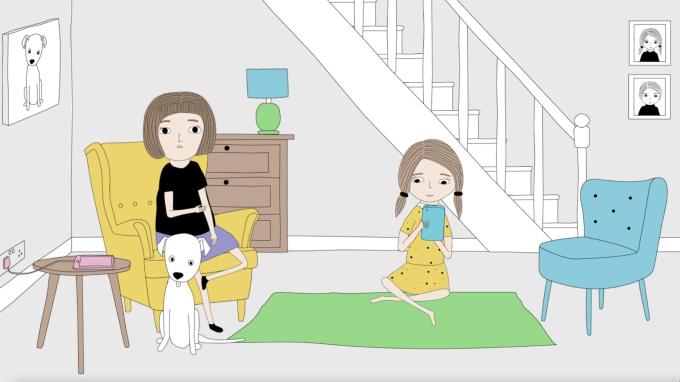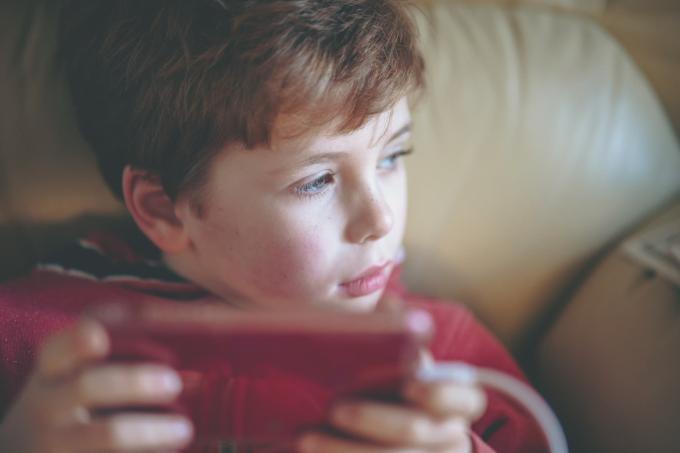The Online Safety Bill – now the Online Safety Act - has finally become law, more than six years after the Government first set out to make the internet safer. Barnardo’s Senior Policy Advisor Jess Edwards talks us through the importance of the new laws and how they will impact children and young people.
What is the Online Safety Act?
The Online Safety Act is a landmark piece of legislation and is a real step forward in making the UK the safest place to be online as a child.
Jess Edwards, Senior Policy Advisor
The Online Safety Act is a new law, which introduces measures to make sure that children are protected online. It will help to make social media platforms and other online companies responsible for ensuring children are protected on their platforms and are not exposed to harmful content whilst online.
The Online Safety Bill will be implemented over the next three years, with some measures – including age verification for pornography – needing to come in sooner, within 18 months.
Along with other charities, Barnardo’s has played a role in making sure that the Act is fit for purpose in protecting children from online harms and ensuring that children are able to enjoy being online safely.
What exactly will the Online Safety Act do to protect children?
The new measures this law sets out include:
- introducing age assurance and age verification to ensure that children cannot access services not designed for them. This includes pornography sites and social media companies having to check you are 18 or over before you can access pornographic material, and social media sites having to prevent children accessing them before the minimum age (often 13 years old)
- placing a duty on the largest social media platforms to publish risk assessments, so that the risks and dangers posed to children on the platform are transparent
- placing a duty on social media sites to take action to prevent illegal and harmful content from being shared on their platform and making sure it is quickly removed. This includes content like videos and images of child sexual abuse and exploitation
- introducing new criminal offences, so that things like encouraging others to self-harm; 'trolling' or purposefully targeting people who have epilepsy with harmful flashing content and sending people unsolicited nude images, sometimes called 'cyberflashing', will all be a crime
- giving bereaved parents the right to access their child’s data
- providing parents and children with accessible ways to report any problems online if they do arise
- introducing punishment and sanctions for social media platforms that do not follow the Online Safety Act
“As well as providing protection for children, the Act will also give adult users the option to opt out of seeing harmful material on the largest platforms.” Jess explains.
“Social media platforms will also be under a legal duty to enforce their terms and conditions – the list of promises that they make to users when they sign up.”
Preventing children from accessing pornographic content online
One of the reasons we at Barnardo’s care about this law, is that we were particularly concerned about children accessing inappropriate and harmful content online, including pornographic content. Research from the Children’s Commissioner for England found that the average age a child accessed pornography was 13 years old, with one in ten 9-year-olds seeing pornographic content.
“As there are no blockers in place, children are able to access harmful pornographic content at the click of a button, and are often first stumbling across it accidentally.”
“Our frontline practitioners have told us how children and young people that they support had been affected by seeing pornography online.” Jess, who worked on campaigning for this law change, says. “This includes harming their mental health, and also distorting their perceptions of healthy sex, relationships, and consent.”
Children feel that the acts that they see in pornographic content – which are often violent, degrading and humiliating – are normal and ‘expected’ parts of relationships.
Jess Edwards, Senior Policy Advisor
Barnardo’s, alongside the Centre to End All Sexual Exploitation (CEASE), led a coalition of charities to call for the Online Safety Act to include robust age verification to prevent children from seeing this harmful content online. As well as dedicated pornography sites, we were also concerned about the availability of pornographic content on mainstream social media sites – including X (formerly Twitter) and Reddit – as we know that social media sites are the most common places that children see pornographic content.
We worked closely with MPs and Peers, including Lord Bethell and Barnardo’s Vice President, Baroness Floella Benjamin, to call on the Government to strengthen age verification measures. This included writing an open letter to the Prime Minister alongside 78 other contributors calling for him to take action to protect children from seeing harmful and extreme pornography online.
“We are pleased that our work has made a real difference for children, and that the Online Safety Act will include a duty on both dedicated pornography sites and social media platforms to implement age verification and age estimation technologies that are “highly effective” at determining whether a user is a child.” Jess says.
Age verification and age estimation technologies are already widely used in everyday life – from online gambling sites to purchasing alcohol online. The providers of these technologies operate at scale, and in a way that respects the privacy of the user. They operate using a ‘double-blind’ model – meaning that the age verification provider never reveals the users’ data (other than that they are over 18 years old) to the site, and the age verification provider never sees what sites the user is accessing. Age verification providers are tightly regulated by organisations such as the Information Commissioner’s Office to ensure that they comply with GDPR and other relevant international standards.
What are the next steps for the Online Safety Act?
Now that the Online Safety Act has become law, Ofcom has been given the power to implement and regulate the Act. Our work in this area has not finished though. “We will continue to work closely with Ofcom, to make sure that the implementation and regulation of the Act best protects children. We know that technology – and risks to children – emerge all the time, and we will work with the Government to make sure that the law stays ahead of the risks to children. This will include engagement around emerging areas of harm online, such as through Artificial Intelligence and Virtual Reality platforms.” Jess explains.
“We will also continue to work closely with the Government regarding their ongoing review into pornography.” We are calling for pornographic content to be regulated the same way online as it is offline, and we are particularly concerned about pornographic content which can sexualise children. This includes ‘barely legal’ pornography, where young-looking, petite adults are made to look like children through props, toys and child-like clothing, and incest pornography. This content would be illegal offline, but is common online.
“We are concerned that viewing this content can lead to escalation pathways for users, where the content becomes more and more extreme until the next click is child sexual abuse material.”
How do we support children and young people who are affected by pornography?
We have supported children and young people who have experienced harm, abuse and exploitation for more than 30 years. Last year, we supported more than 6,000 children and their families from across the UK through our abuse and exploitation services.

Is my child safe online? Parents’ questions answered
Get answers to common questions about keeping children safe online from our online safety experts.

Keeping your child safe on their smartphone
Get tips and advice about using parental controls, as well as other ways you can help keep children safe on their phones.

Child criminal exploitation and sexual exploitation definitions
Find out more about key terms used when discussing child criminal and sexual exploitation and the importance of using the right language.

